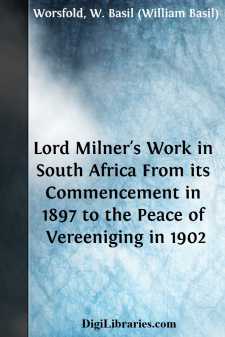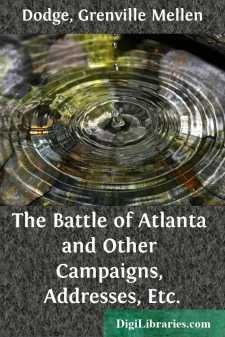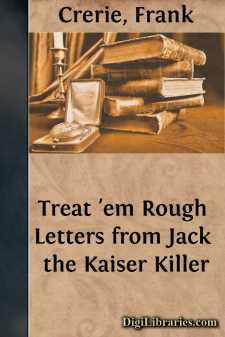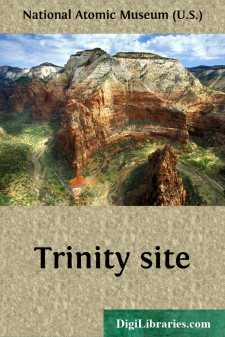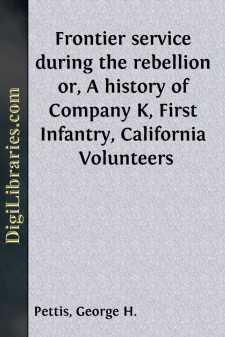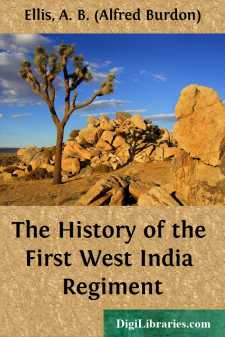History
- Africa 30
- Americas (North Central South West Indies) 50
- Ancient 68
- Asia 58
- Australia & New Zealand 8
- Canada 41
- Caribbean & West Indies 1
- Civilization 20
- Eastern Europe 12
- Europe 310
- Expeditions & Discoveries 60
- General 77
- Historical Geography 1
- Jewish 9
- Latin America 3
- Medieval 8
- Middle East 13
- Military 248
- Revolutionary 8
- Study & Teaching 5
- United States 353
- Western Europe 56
- World 13
History Books
Sort by:
INTRODUCTION THE established church in the United Netherlands was the Reformed Church. Its polity was that of Geneva or of Presbyterianism. The minister and ruling or lay elders of the local church formed its consistory, corresponding to the Scottish or American kirk session. The next higher power, administrative or judicial, resided in the classis, consisting of all the ministers in a given district...
more...
CHAPTER I DOWNING STREET AND THE MAN ON THE SPOT The failure of British administration in South Africa during the nineteenth century forms a blemish upon the record of the Victorian era that is at first sight difficult to understand. If success could be won in Canada, Australia and New Zealand, in India and in Egypt, why failure in South Africa? For failure it was. A century of wars, missionary effort,...
more...
THE SOUTHWESTERN CAMPAIGN The Southwest became prominent before the nation early in the war from the doubt existing as to the position of Missouri, which was saved by the energy and determination of Frank P. Blair and Colonel Nathaniel Lyon; the latter first capturing Camp Jackson, on May 10th, 1861. He then, picking up what force he could without waiting for them to be disciplined or drilled,...
more...
by:
Frank Crerie
JACK THE KAISER KILLER Camp Grant, Sept. 23. FRIEND AL: Well Al I am writeing this in the recreation room at our barracks and they's about 20 other of the boys writeing letters and I will bet some of the letters is rich because half of the boys can't talk english to say nothing about writeing letters and etc. We got a fine bunch in my Co. Al and its a cinch I won't never die in the...
more...
THE FIRST ATOMIC TEST On Monday morning July 16, 1945, the world was changed forever when the first atomic bomb was tested in an isolated area of the New Mexico desert. Conducted in the final month of World War II by the top-secret Manhattan Engineer District, this test was code named Trinity. The Trinity test took place on the Alamogordo Bombing and Gunnery Range, about 230 miles south of the...
more...
by:
George H. Pettis
The first battle of Bull Run had been fought. The government had become satisfied that the slaveholder's rebellion was not to be put down with seventy-five thousand men. The Union people of the United States now fully realized that the rebels were to use every effort on their part towards the establishment of the Confederacy, and the men of the north, on their part, were ready to "mutually...
more...
CHAPTER I A UNION IN FORM ONLY When did the sovereign nation of the United States begin? From one point of view, it was called into existence by the motion for Independence passed by the Continental Congress on the second day of July, 1776, when the people of the rebelling British colonies in America, by action of their representatives, assumed a free and independent position. But a motion is...
more...
INTRODUCTORY CHAPTER. At the present day, when our Continental neighbours are outvying each other in the completeness of their military organisations and the size of their armies, while in the United Kingdom complaints are daily heard that the supply of recruits for the British Army is not equal to the demand, it may not be out of place to draw the attention of the public to a source from which the...
more...
by:
John David Hills
CHAPTER 1. ENGLAND. 4th Aug., 1914.25th Feb., 1915. The Territorial Force, founded in 1908, undoubtedly attracted many men who had not devoted themselves previously to military training, nevertheless it took its character and tone from men who had seen long service in the old Volunteer Force. Hence, those who created the Territorial Force did nothing more than re-organise, and build upon what already...
more...
ANGLO-CHINESE LIFE Anglo-Chinese life is a sealed book to most people at home, who, if they ever think about it at all, do so with minds adversely biassed by ignorance of the conditions, a hazy idea of intense heat, and a remembrance of cruel massacres. "Going to China" always elicits looks and exclamations of astonishment at so rash an undertaking, but which the stock questions as to whether...
more...



